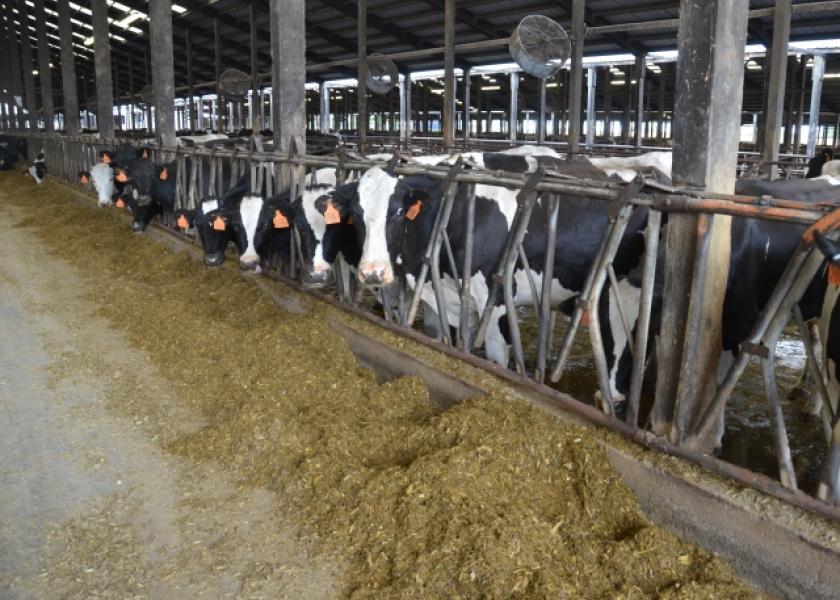Oregon Approves 5 Dairy Expansions

Five Oregon dairies have been given permission to expand, adding a total of about 4,500 animals.
Forty-three people attended a public hearing on the proposed expansions last September, and 34 people submitted written comments.
But the Oregon Department of Agriculture said it doesn't have authority to regulate most of the objections they raised.
Those include concerns about animal welfare, noxious odors from manure lagoons, decreased property values for neighbors, an increase in greenhouse gas emissions and water use, increased use of antibiotics and growth hormones, and growing traffic accidents from increased transport of manure.
Instead, ODA said, under the permit it issues, it can only regulate water quality aspects of the operations by prohibiting unauthorized discharges of manure, litter or process wastewater to surface and ground waters.
ODA did, however, require the five dairies to meet several new conditions that soon will be required of all large dairies and other large confined animal feeding operations.
The dairies will have to sample soil where manure is applied every fall, rather than every five years as currently required. They will have to test levels of nitrate nitrogen as well as the currently required total nitrogen and total phosphorus. And they'll have to use a soil sample that's less than three years old to calculate manure application rates.
The five facilities are:
- Martin Dairy, in Tillamook, which has 1,252 animals. It has been approved to increase the land application area for manure and waste.
- Hogan Dairy Farms, in Tillamook. The permit allows the consolidation of Misty Meadows Dairy and Golden Mist Dairy, and increases the total allowed animals from 4,550 to 5,200.
- Pozzi Dairy, in Coquille. It's now permitted to increase the number of animals it houses from 345 to 1,550.
- Bonanza View Dairy, near Bonanza, about 24 miles east of Klamath Falls. It's now permitted for 4,585 animals, up from 2,350.
- Moisan Dairy, in the Marion County city of Keizer, which now is permitted to increase the number of livestock it houses from 1,900 to 2,300.
In 2007, the U.S. Food and Drug Administration issued a warning letter to owner Donald J. Moisan for multiple violations of food safety laws.
Those included holding animals under such inadequate conditions that animals bearing potentially harmful drug residues were likely to enter the food supply; and selling an animal for food that was adulterated with high levels of antibiotics while certifying that it did not contain illegal drug residues.
In 2014, ODA fined the dairy $2,800 for failing to follow its existing waste management plan.
Wym Matthews, an ODA program manager, said he's confident Moisan Dairy has the ability to operate in compliance with its permit.
"You get a speeding ticket, you don't lose your driver's license for the first two, three, four tickets you get," Matthews said. "That's how we looked at the noncompliance. The facility did, in our minds, do a good job remedying the reasons for that noncompliance."
And the FDA findings regarding animal welfare and food safety don't have any bearing on a water quality permit, he said.
"That's not something we can respond to," he said.
Karen Debra Messer, a member of Salem's Cherry City Vegans, was among those testifying against the expansions.
"The state of Oregon, in my opinion, would do much better by providing jobs for people who labor growing and processing almonds, soybeans, cashews, and our wonderful hazelnuts, instead of factory-farm animals," Messer said, referring to nut milks.
The farming advocacy group Friends of Family Farmers also submitted comments.
Policy director Ivan Maluski said the group now is most concerned about pending approval of a new umbrella permit for confined animal feeding operations (CAFOs) under the federal Clean Water Act.
Oregon's CAFOs share a National Pollutant Discharge Elimination System permit, which expired in 2014. State officials have been working with the U.S. Environmental Protection Agency to draft a new, five-year permit.
Until it becomes final, no new CAFOs can be permitted in the state.
Facilities also submit individual waste management plans under the permit, which is what the five dairies had asked to be modified.
"We continue to be very concerned that the likely approval in coming weeks of the statewide CAFO water pollution permit by ODA and DEQ could lead to a major expansion of new factory farm scale CAFO's in Oregon in coming years," Maluski said.
The proposed permit currently is under review by the Oregon Department of Justice, which could require an additional public comment period, Matthews said.
Oregon ranks 14th nationwide for dairy CAFOs, with 90,356 animals, according to the environmental group Food & Water Watch. Marion County, meanwhile, ranks second statewide for the number of dairy animals, behind Morrow County, home of Threemile Canyon Farms, one of the nation's largest dairy operations.
Oregon dairy farmers brought in $598.9 million in 2012, according to the Oregon State University Extension Service.







